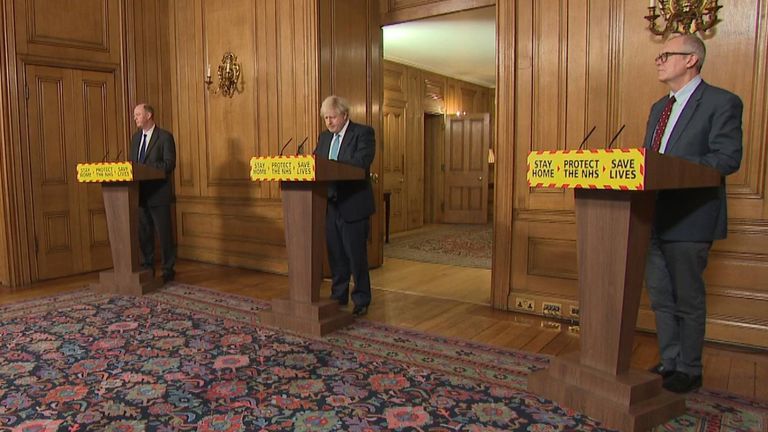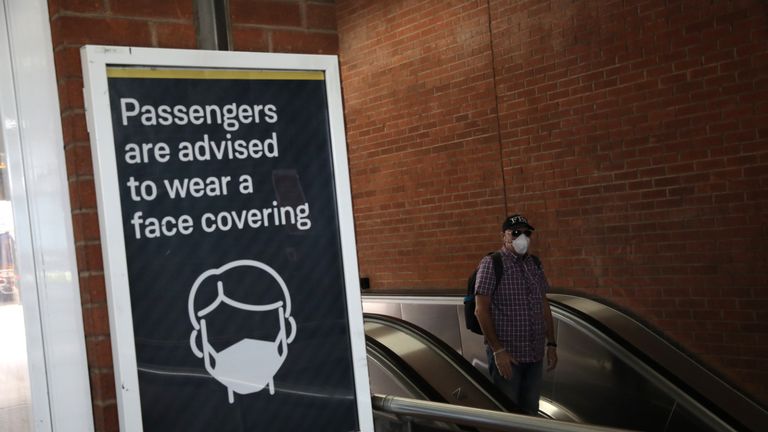COVID-19: Rule-breakers more likely to be fined after Met Police toughens guidelines
Coronavirus rule-breakers are more likely to face fines under new guidelines issued by the Metropolitan Police.
Hours after the new England-wide lockdown came into force, Scotland Yard said it had “refreshed” its instructions to officers to issue financial penalties more quickly to those committing “obvious, willful and serious breaches”.
And all those attending illegal gatherings like house parties or raves will face a fine too – rather than just organisers.
A “stay at home” order is now in effect, after Prime Minister Boris Johnson’s announcement on Monday given record-high COVID-19 cases and rapidly increasing fatalities.
On Tuesday, 60,916 new coronavirus infections were reported, as well as 830 deaths within four weeks of a positive test.
Police now have the power to fine anyone 18 and over for not wearing a mask in public places where it is legally required and those who ignore the ban on social mixing with others outside their household or bubble.
Rule-breakers face a £200 fine for their first offence, which is halved if paid within two weeks.
Those who commit a second breach can be hit with a subsequent £400 fine, which then doubles for each further offence up to a maximum of £6,400.
The Met said officers will still “apply the 4 E’s approach of engaging, explaining, encouraging and enforcing”.
But it warned: “Londoners can expect officers to be more inquisitive as to why they see them out and about.
“Where officers identify people without a lawful reason to be away from home they can expect officers to move more quickly to enforcement.”
And the force added it will work with councils to make sure companies whose shops are still allowed to stay open and those using public such as parks are following the rules.
A Greater Manchester Police spokesperson did not deny it could follow suit.
They told Sky News: “We will be looking carefully at the new policing regulations implemented so we can educate people accordingly of any changes.”
Source: Read Full Article





